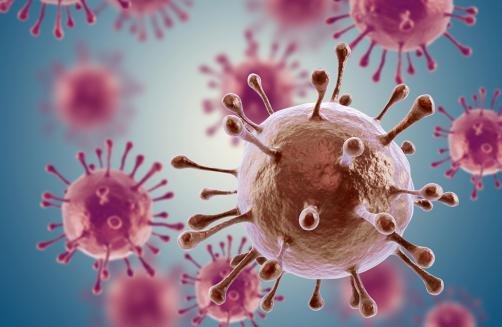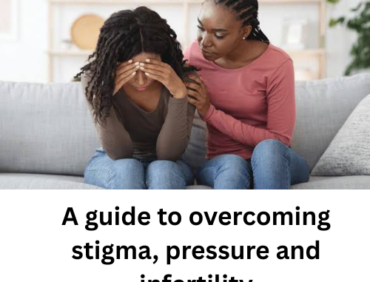If there is one disease that takes away human lives so suddenly and frequently these days, it is cancer.
We all have that friend or family member who has been lost to cancer and the number keeps growing on a daily basis.
For the fact that the exact cause of cancer has not been detected yet, everyone needs to really be careful and be aware of important information they need to know about this deadly disease.
For those who are also currently suffering from one type of cancer or the other, the information below will help you.
So, What is Cancer?

Cancer is disease in which abnormal cells divide uncontrollably and destroy body tissue. Cancer generally refers to a group of diseases involving abnormal cell growth with the potential to invade or spread to other parts of the body.
Today, there are more than 100 types of cancer, including breast cancer, skin cancer, lung cancer, colon cancer, prostate cancer, lymphoma and so on.
Cancer symptoms vary depending on the type. Possible signs and symptoms include a lump, abnormal bleeding, prolonged cough, unexplained weight loss and a change in bowel movements.
While these symptoms may indicate cancer, they may have other causes. Cancer treatment may include chemotherapy, radiation, surgery or alternative remedies.
Normally, healthy cells in our bodies divide and replace themselves in a controlled fashion. Cancer starts when a cell is somehow altered so that it multiplies out of control.
What is a Tumour?

A tumour is a mass composed of a cluster of such abnormal cells. Most cancers form tumours, but not all tumours are cancerous.
Benign, or noncancerous, tumours do not spread to other parts of the body, and do not create new tumours. A typical example here are fibroid tumours.
Malignant, or cancerous, tumours crowd out healthy cells, interfere with body functions, and draw nutrients from body tissues.
Cancers continue to grow and spread by direct extension or through a process called metastasis, whereby the malignant cells travel through the lymphatic or blood vessels eventually forming new tumours in other parts of the body.
Classification of Cancer
The major classification of cancer are carcinoma, sarcoma, melanoma, lymphoma, and leukaemia.
Carcinomas, the most commonly diagnosed cancers originate in the skin, lungs, breasts, pancreas, and other organs and glands.
Lymphomas are cancers of lymphocytes.
Leukaemia is cancer of the blood, which does not usually form solid tumours.
Sarcomas arise in bone, muscle, fat, blood vessels, cartilage, or other soft or connective tissues of the body and are relatively uncommon.
Melanomas are cancers that arise in the cells that make the pigment in skin.
Cancer Signs and Symptoms

When cancer begins, it produces no symptoms.
Signs and symptoms appear as the mass grows or ulcerates. Cancer is a “great imitator”. Thus, it is common for people diagnosed with cancer to have been treated for other diseases, which were hypothesized to be causing their symptoms before cancer will now be finally detected.
This is why a lot of cancer patients, especially in this part of the world always detect the condition so late.
Local symptoms
Local symptoms may occur due to the mass of the tumour or its ulceration. For example, mass effects from lung cancer can block the bronchus resulting in cough or pneumonia.
oesophageal cancer can cause narrowing of the oesophagus, making it difficult or painful to swallow.
colorectal cancer may lead to narrowing or blockages in the bowel, affecting bowel habits.
Masses in breasts or testicles may produce observable lumps. Ulceration can cause bleeding that, if it occurs in the lung, will lead to coughing up blood, in the bowels to rectal bleeding, in the bladder to blood in the urine and in the uterus to vaginal bleeding.
Although localized pain may occur in advanced cancer, the initial swelling is usually painless. Some cancers can cause a buildup of fluid within the chest or abdomen.
Systemic Symptoms
General symptoms occur due to effects that are not related to direct or metastatic spread. These may include: unintentional weight loss, fever, excessive fatigue and changes to the skin.
Hodgkin disease, leukemias and cancers of the liver or kidney can cause a persistent fever.
Some cancers may cause specific groups of systemic symptoms, termed paraneoplastic syndrome. Examples include the appearance of myasthenia gravis in thymoma and clubbing in lung cancer.
Metastasis
Cancer can spread from its original site by local spread, lymphatic spread to regional lymph nodes or by haematogenous spread via the blood to distant sites, known as metastasis.
When cancer spreads by a haematogenous route, it usually spreads all over the body. However, cancer ‘seeds’ grow in certain selected site only (‘soil’) as hypothesized in the soil and seed hypothesis of cancer metastasis.
The symptoms of metastatic cancers depend on the tumour location and can include enlarged lymph nodes (which can be felt or sometimes seen under the skin and are typically hard), enlarged liver or enlarged spleen, which can be felt in the abdomen, pain or fracture of affected bones and neurological symptoms.
Causes of Cancer

The majority of cancers, about 90–95% of reported cases, are due to genetic mutations from environmental factors. The remaining 5–10% are due to inherited genetics.
Environmental, as used by cancer researchers, means any cause that is not inherited genetically and this includes lifestyle, economic and behavioural factors and not merely pollution.
Common environmental factors that contribute to cancer death include tobacco, diet and obesity, chemicals (from food, cosmetics, toiletries and so on), infections, radiation (both ionizing and non-ionizing), stress, lack of physical activity, physical agents, hormones, auto-immune diseases and pollution.
How Cancer is Diagnosed
Early cancer diagnoses and treatment improves and increases the chances of being cured. Some types of cancer such as those of the skin, breast, mouth, testicles, prostate, and rectum may be detected by routine self-exam or other screening measures before the symptoms become serious.
Most cases of cancer are detected and diagnosed after a tumour can be felt or when other symptoms develop. In a few cases, cancer is diagnosed incidentally as a result of evaluating or treating other medical conditions.
Cancer diagnosis begins with a thorough physical exam and a complete medical history. Laboratory studies of blood, urine, and stool can detect abnormalities that may indicate cancer.
When a tumour is suspected, imaging tests such as X-rays, computed tomography (CT), magnetic resonance imaging (MRI), ultrasound, and fibre-optic endoscopy examinations help doctors determine the cancer’s location and size.
To confirm the diagnosis of most cancers , a biopsy needs to be performed in which a tissue sample is removed from the suspected tumour and studied under a microscope to check for cancer cells.
If the diagnosis is positive (cancer is present), other tests are performed to provide specific information about the cancer.
This essential follow-up phase of diagnosis is called staging.
The most important thing doctors need to know is whether cancer has spread from one area of the body to another. If the initial diagnosis is negative for cancer and symptoms persist, further tests may be needed.
If the biopsy is positive for cancer, be sure to seek a confirming opinion by a doctor who specializes in cancer treatment before any treatment is started.
Depending on the type and stage of cancer, treatments to eradicate the tumour or slow its growth may include some combination of surgery, radiation therapy, chemotherapy, hormone therapy, immunotherapy or herbal and alternative therapies.
Cancer Treatments

CANCER treatments includes:
Surgery: The main goal is to remove tumours, tissue, or areas with cancer cells, such as lymph nodes. Doctors also may do it to diagnose the disease or find out how serious it is.
In many cases, surgery offers the best chance of getting rid of the disease, especially if it hasn’t spread to other parts of the body. Along with a traditional operation, doctors can also fight some types of cancer with:
- Laser surgery (beams of light)
- Electrosurgery (electric currents)
- Cryosurgery (very cold temperatures to freeze cancer cells)
Chemotherapy: Chemotherapy uses drugs to kill cancer cells. Chemotherapy can sometimes cause long-lasting side effects, like infertility and nerve damage.
Generally, there are two methods for chemotherapy, which are:
“Traditional” Chemotherapy: You get most chemo medications through an injection into a vein. But you can get some types as a shot in your muscle, under your skin, or as an ointment or cream to put on your skin.
Side effects usually vary from person to person, even if you have the same type of cancer and get the same treatment as someone else.
Oral (a.k.a. “No Needle”) Chemotherapy: With this type of treatment, you swallow a drug in liquid, tablet, or capsule form at home. It works as well as other forms of chemotherapy for some types of cancer, but not all chemo drugs can be taken by mouth.
There are some that the stomach can’t absorb, and others can be harmful if you swallow them. Oral drugs can cost more out-of-pocket than traditional chemo, too.
Radiation: This common treatment uses high-energy particles or waves to destroy or damage cancer cells to keep them from spreading. It might be your only treatment, or you might get it along with surgery, chemotherapy or herbal therapy.
Radiation itself isn’t painful, but afterward you may have pain, fatigue, and skin rashes around the place you got the treatment. There are also known side effects for radiation therapy too which depend on the location of the cancer cells.
Targeted therapy: In which drugs work against specific parts of cancer cells to keep them from growing or spreading.
Immunotherapy: also called biologic therapy, which gets the body’s immune system to fight cancer.
Hormone therapy: also called hormone treatment or hormonal therapy, which treats cancers that use hormones to grow (such as breast cancer and prostate cancer).
Stem cell transplants: The use of chemo or radiation to destroy as many cancer cells as possible, then try to replace them with healthy stem cells from bone marrow or blood.
Photodynamic therapy: This works by injecting a special drug into the bloodstream, then use a specific type of light to make it kill cancer cells.
With any cancer treatment, it might take a while before you know how it affects the disease. It is important to stay in touch with your doctor or therapist and keep such person in the loop about anything that doesn’t feel right. You are the most important part of your cancer care team.
Treating Cancer Naturally: This involves the use of combination of cancer-fighting herbs, diet and lifestyle changes to cure cancer.
This is has been proven to be more effective for the fact that it is almost the least risky out of all the therapies available to tackle cancer.
Treating cancer naturally will not have any side effect on your immune system or affect other healthy body cells.
If you need such therapy for cancer, click here to contact us.
Exercise and Cancer: Exercise can help control fatigue, muscle tension, and anxiety in those with cancer.
Patients tend to feel better if they do exercises such as walking or swimming. Exercise has also been shown to improve the outcomes associated with cancer treatment.
Mind/Body Medicine for Cancer: Some mind/body therapies improve quality of life for cancer patients through behaviour modification.
Others encourage expression of emotions. Behaviour therapies such as guided imagery, progressive muscle relaxation, hypnotherapy, and biofeedback are used to alleviate pain, nausea, vomiting, and the anxiety that may occur in anticipation of, or after, cancer treatment.
Individual or group counselling allows patients to confront problems and emotions caused by cancer and receive support from fellow patients in a group setting. Patients who pursue these types of therapies tend to feel less lonely, less anxious about the future, and more optimistic about recovery.
Nutrition, Diet, and Cancer: Scientific evidence suggests that nutrition plays a role in cancer prevention.
Observational studies have shown that cancer is more common in some people with certain dietary habits such as colorectal cancer in people who have diets rich in meat products.
Studies show some supplements may increase cancer risk, such as lung cancer risk in smokers taking beta carotene and prostate cancer risk in men taking high doses of vitamin E.
Acupuncture and Acupressure
Acupuncture and acupressure are examples of “complementary” medicine for cancer. There are evidences that show that they help reduce symptoms and side effects of the illness and its treatment.
Homeopathy and Cancer: Homeopathic preparations may ease the nausea, fatigue, and anxiety associated with cancer and its treatment.
Social Support and Spirituality: Having the support of friends and family can help you deal with the depression, fear, and anxiety that accompany cancer.
In some cases, a strong support network can even affect the length of survival of cancer patients; studies have shown that men who experience limited social contact have a shorter survival time, while women with good social support survive longer from their cancers.
Prayer can relieve stress, create a sense of meaning and purpose, and provide solace. Being an actively spiritual person may have even more benefits; cancer patients who consider themselves spiritual suffer less anxiety and depression, and even less pain, from their cancer.
At-Home Care for Cancer

African American Mother And Adult Daughter Relaxing In Park
After radiation therapy for cancer, be gentle to your skin. Do not scrub it, expose it to sunlight, or wear tight clothing.
Aloe vera ointment is gentle and soothing, along with non-irritating lotions or creams, such as vitamin E.
Eat light healthy snacks throughout the day rather than three heavy meals. Try eating food cold or at room temperature to avoid nausea.
If your treatment involves lowering your white blood cell count, avoid people who are ill. Tell your doctor about any fever or unusual symptoms.
Relieving pain: In addition to taking prescribed medication, try relaxation techniques such as yoga or meditation.
Other Tips
Join a cancer support group. Get plenty of rest, balanced with light exercise. Rather than feeling compelled to maintain a “positive attitude,” express your emotions honestly. Don’t worry if you sometimes feel depressed or afraid: These are normal feelings and legitimate reactions that will not affect your cancer.
Fill your days with activities you enjoy. Reading a good book, listening to music, and talking with friends are surprisingly therapeutic.
If you have been diagnosed of any type of cancer and you need a reliable natural remedy to combat it, click here to contact us today. Many people have been helped.
If you gained anything reading this, kindly share with people you care about to save lives.
Stay Healthy And Never Give Up!
Plan B Wellness
Tel/Text/WhatsApp: +2348099666650
Email: consult@planbwellness.com
Twitter: @planbwellness
Instagram: @planbwellness










